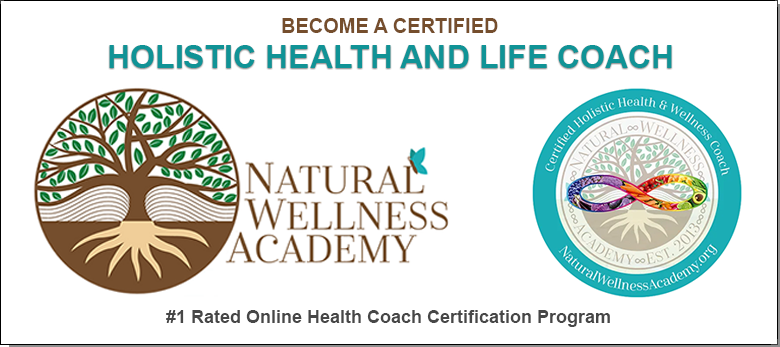
In today’s fast-paced world, maintaining a balanced life can be challenging. Holistic health coaching offers a comprehensive approach to wellness that addresses physical, mental, emotional, and spiritual health. Here we explore the essential skills and core knowledge that holistic health coaches need to guide individuals toward a more harmonious and balanced life. By integrating various practices and personalized strategies, holistic health coaching provides a path to overall well-being and a fulfilling, healthy lifestyle.
Introduction to Holistic Health Coaching
Holistic health coaching is an integrative approach that encompasses physical, mental, emotional, and spiritual well-being. This comprehensive method of coaching goes beyond traditional healthcare by addressing all aspects of a person’s life, aiming to achieve a balanced and harmonious existence.
Definition of Holistic Health Coaching
Holistic health coaching is a practice that views health and wellness from a whole-person perspective. It focuses on the interconnectedness of body, mind, and spirit, helping individuals to create personalized strategies for achieving optimal health. This type of coaching combines various techniques and methodologies to support clients in making sustainable lifestyle changes.
Importance of a Balanced Life
Achieving balance in life is essential for overall well-being. A balanced life allows individuals to function at their best, reducing stress and improving quality of life. Holistic health coaching helps clients identify imbalances and provides the tools and support needed to restore harmony across all areas of their lives.
Understanding Holistic Health
Holistic health is an approach that considers the whole person in the pursuit of optimal wellness. This means addressing not just the physical body, but also the mind, emotions, and spirit. By understanding the interconnectedness of these elements, individuals can achieve a more balanced and fulfilling life.
Definition and Scope
Holistic health encompasses a wide range of practices and philosophies aimed at maintaining and improving overall well-being. It is based on the principle that optimal health is achieved when all aspects of a person’s life are in harmony.
Physical Health
Physical health involves maintaining the body through proper nutrition, regular exercise, and adequate rest. It includes preventative measures, such as regular check-ups and screenings, to detect and address potential health issues early.
Mental Health
Mental health is crucial for overall well-being and involves maintaining a healthy mindset. This includes managing stress, fostering a positive outlook, and addressing any psychological issues that may arise. Techniques such as mindfulness and cognitive-behavioral strategies are often employed.
Emotional Health
Emotional health focuses on understanding and managing emotions effectively. This involves developing resilience, fostering healthy relationships, and practicing self-care. Emotional well-being is essential for coping with life’s challenges and maintaining a positive quality of life.
Spiritual Health
Spiritual health pertains to finding meaning and purpose in life. It can involve religious practices, meditation, or personal reflection. Spiritual wellness helps individuals feel connected to something greater than themselves, providing a sense of peace and purpose.
Principles of Holistic Health
The principles of holistic health guide the approach and practices used to achieve overall wellness. These principles emphasize the importance of balance and interconnectedness [1].
Interconnectedness of Body, Mind, and Spirit
Holistic health recognizes that the body, mind, and spirit are deeply interconnected. Imbalances in one area can affect the others, so it is essential to address all aspects of a person’s life to achieve true wellness.
Preventative and Integrative Approaches
Preventative care is a cornerstone of holistic health, focusing on maintaining health and preventing disease before it occurs. Integrative approaches combine conventional medical practices with alternative therapies, providing a comprehensive method of care that addresses all aspects of well-being.
Individualized Care
Holistic health promotes individualized care tailored to each person’s unique needs and circumstances. This personalized approach ensures that health and wellness strategies are effective and sustainable for the individual, fostering long-term well-being.

Essential Skills for Holistic Health Coaches
Holistic health coaches play a vital role in guiding individuals toward a balanced and healthy life. To be effective, they must possess a range of essential skills that enable them to understand their clients’ needs, develop personalized wellness plans, and provide ongoing support and motivation.
Effective Communication
Effective communication is the cornerstone of successful holistic health coaching. It involves not only conveying information clearly but also understanding and responding to the client’s needs and concerns.
Active Listening
Active listening is a crucial skill that involves fully concentrating, understanding, responding, and remembering what the client says. This helps build trust and ensures that the coach accurately comprehends the client’s issues and goals.
Empathetic Responses
Empathy allows coaches to connect with clients on an emotional level, showing that they genuinely care about their well-being. Empathetic responses validate the client’s feelings and experiences, fostering a supportive coaching environment.
Clear and Compassionate Guidance
Providing clear and compassionate guidance helps clients understand their wellness plans and feel supported throughout their journey. This involves explaining concepts in an understandable way and offering encouragement and understanding as clients work toward their goals.
Assessment and Evaluation
Accurate assessment and evaluation are essential for creating effective wellness plans. These skills enable coaches to understand the client’s current health status and progress over time [2].
Initial Health Assessments
Initial health assessments involve gathering comprehensive information about the client’s physical, mental, emotional, and spiritual health. This forms the basis for developing a personalized wellness plan.
Identifying Client Needs and Goals
Understanding the client’s specific needs and goals is crucial for tailoring the wellness plan to their unique situation. This involves discussing the client’s aspirations, challenges, and any areas where they seek improvement.
Monitoring Progress
Regular monitoring of progress helps ensure that the wellness plan is effective and allows for adjustments as needed. This includes tracking changes in the client’s health and well-being and making necessary modifications to the plan.
Personalized Program Development
Creating personalized wellness programs is a key aspect of holistic health coaching. These programs are designed to meet the unique needs of each client, incorporating various holistic practices.
Creating Tailored Wellness Plans
Tailored wellness plans are customized to address the specific health concerns and goals of the client. These plans may include nutrition, exercise, stress management, and other holistic practices.
Integrating Various Holistic Practices
Holistic health coaches often integrate a range of practices, such as yoga, meditation, and natural remedies, into their wellness plans. This comprehensive approach addresses all aspects of the client’s well-being.
Flexibility and Adaptability
Flexibility and adaptability are essential for responding to the changing needs of the client. Coaches must be able to adjust wellness plans as clients progress and encounter new challenges.
Motivational Techniques
Motivation is a critical component of successful holistic health coaching. Coaches must inspire and encourage clients to stay committed to their wellness journey.
Goal Setting and Achievement
Setting realistic and achievable goals helps clients stay focused and motivated. Coaches work with clients to establish clear, measurable objectives and develop strategies for achieving them.
Positive Reinforcement
Positive reinforcement involves acknowledging and celebrating the client’s successes, no matter how small. This boosts confidence and encourages continued effort toward achieving their wellness goals [3].
Encouraging Lifestyle Changes
Encouraging and supporting lifestyle changes is vital for long-term health and well-being. Coaches provide guidance and encouragement as clients adopt new habits and make sustainable changes to improve their overall health.
Core Knowledge Areas for Holistic Health Coaches
Holistic health coaches need a deep understanding of various knowledge areas to guide their clients effectively. These core areas encompass nutrition, physical activity, mental and emotional well-being, and spiritual practices, providing a comprehensive foundation for holistic health coaching.
Nutrition and Diet
Nutrition plays a vital role in overall health and well-being. Holistic health coaches must understand the principles of balanced nutrition and how to apply them to support their clients’ health goals.
Principles of Balanced Nutrition
Balanced nutrition involves consuming a variety of foods that provide essential nutrients. Coaches need to understand macronutrients (proteins, carbohydrates, and fats) and micronutrients (vitamins and minerals) to create well-rounded meal plans.
Special Dietary Needs
Some clients may have specific dietary needs due to allergies, intolerances, or medical conditions. Coaches should be knowledgeable about various dietary restrictions and how to accommodate them while ensuring nutritional adequacy.
Supplements and Natural Remedies
Supplements and natural remedies can support overall health when used appropriately. Coaches should understand the benefits and potential risks of various supplements and how they can complement a balanced diet.
Physical Activity and Exercise
Regular physical activity is crucial for maintaining physical health and well-being. Holistic health coaches must be able to design and recommend appropriate exercise programs for their clients.
Importance of Regular Physical Activity
Physical activity helps improve cardiovascular health, build strength, and enhance flexibility. Coaches need to communicate the importance of regular exercise and how it contributes to overall health.
Designing Exercise Programs
Creating effective exercise programs requires understanding different types of physical activity, such as aerobic exercises, strength training, and flexibility exercises. Programs should be tailored to the client’s fitness level and health goals.
Yoga and Mindful Movement
Yoga and other mindful movement practices, such as tai chi, promote physical and mental well-being. Coaches should be familiar with these practices and how they can be integrated into a holistic wellness plan [4].
Mental and Emotional Well-Being
Mental and emotional health are integral to overall wellness. Holistic health coaches must understand various strategies to support their clients’ mental and emotional well-being.
Stress Management Techniques
Effective stress management is essential for maintaining mental health. Coaches should be knowledgeable about techniques such as deep breathing, progressive muscle relaxation, and time management to help clients reduce stress.
Mindfulness and Meditation
Mindfulness and meditation practices can improve mental clarity and emotional resilience. Coaches should be able to guide clients in incorporating these practices into their daily routines.
Cognitive Behavioral Strategies
Cognitive behavioral strategies help clients address negative thought patterns and behaviors. Coaches should understand the basics of cognitive behavioral therapy (CBT) and how to apply its principles to support clients’ mental health.
Spiritual Practices
Spiritual wellness is a key component of holistic health. Holistic health coaches should be familiar with various spiritual practices that can enhance their clients’ overall well-being.
Understanding Spiritual Wellness
Spiritual wellness involves finding meaning and purpose in life. Coaches should understand different ways clients might experience spiritual wellness, whether through religion, meditation, or personal reflection.
Meditation and Prayer
Meditation and prayer are common spiritual practices that promote inner peace and well-being. Coaches should be able to guide clients in these practices, helping them develop a regular routine.
Energy Healing Practices
Energy healing practices, such as Reiki or acupuncture, aim to balance the body’s energy. Coaches should have a basic understanding of these practices and how they can be used to support holistic health.
References
[1] What is a Holistic Wellness Coach?
[2] What Is A Holistic Life Coach?
[3] What Is Health Coaching? 12 Benefits & Principles Explained
[4] Holistic Health Practitioner vs Health Coach

